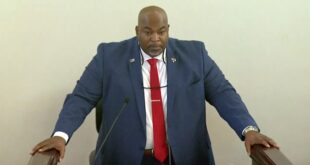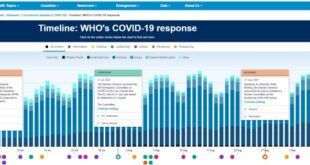Court rules nearly 98,000 Arizonans whose citizenship hadn’t been confirmed can vote the full ballot, a decision that has sparked significant debate and raised questions about voter eligibility and citizenship verification. The ruling, which came after a lengthy legal battle, allows these individuals to participate in elections despite their citizenship status remaining unclear.
This decision has generated strong reactions from various political parties and advocacy groups, with some applauding the court’s move to expand voting rights and others expressing concerns about potential voter fraud.
The case highlights the complexities of balancing voter access with ensuring the integrity of elections. It also raises concerns about the potential impact on future elections in Arizona, where voter registration and citizenship verification procedures are already under scrutiny. The court’s decision has brought the issue of voter eligibility to the forefront, prompting discussions about the role of citizenship in determining voting rights and the need for clear and consistent policies across the country.
The Court Ruling
A recent court ruling in Arizona has allowed nearly 98,000 residents to vote in the full ballot, despite their citizenship not being definitively confirmed. This decision has sparked significant debate, raising questions about voter integrity and the legal framework surrounding voting rights.
Arguments Presented by Both Sides
The case involved a legal challenge to Arizona’s voter registration process, specifically the requirement for voters to provide proof of citizenship. Advocates for the ruling argued that the requirement disproportionately impacted minority groups and created barriers to voter participation.
They maintained that the state’s existing voter registration system, which relies on self-attestation, is sufficient to prevent voter fraud. The opposing side, however, argued that the requirement is essential to maintain the integrity of elections and prevent non-citizens from voting.
They pointed to instances of voter fraud in other states and emphasized the importance of verifying citizenship to ensure fair and accurate elections.
Potential Impact of the Ruling
The court’s decision has the potential to significantly impact future elections in Arizona. It could lead to an increase in voter turnout, particularly among minority groups who may have been previously discouraged from registering to vote. However, it also raises concerns about the potential for voter fraud and the accuracy of election results.
The ruling could also have broader implications for voting rights nationwide. Similar legal challenges to voter registration requirements are ongoing in other states, and the Arizona case could set a precedent for future court decisions.
Voter Eligibility and Citizenship Verification
The recent court ruling in Arizona has brought to light the crucial issue of voter eligibility and citizenship verification. While the court has determined that nearly 98,000 individuals whose citizenship hadn’t been confirmed can vote in the state, the debate surrounding voter registration requirements and citizenship verification remains a significant topic.
Arizona’s Voter Registration Procedures
Arizona has implemented specific procedures for verifying citizenship during voter registration. The state requires individuals registering to vote to provide proof of citizenship, such as a birth certificate, passport, or naturalization certificate. Arizona’s system is designed to ensure that only eligible citizens can register to vote.
Comparison with Other States
Arizona’s voter registration requirements are more stringent than those in many other states. Some states, like California and New York, do not require proof of citizenship for voter registration. Instead, they rely on a system of self-attestation, where individuals affirm their citizenship when registering to vote.
Other states, such as Georgia and Texas, have implemented laws requiring proof of citizenship for voter registration, similar to Arizona’s approach.
Challenges and Concerns
The implementation of citizenship verification processes raises several challenges and concerns. One concern is the potential for voter suppression, where individuals who are eligible to vote may be discouraged from registering due to the complexity of the process. Another concern is the potential for discrimination, as certain groups may be disproportionately impacted by the requirements.
Additionally, there are concerns about the accuracy and efficiency of the verification process. Ensuring that the process is accurate and efficient is crucial to maintain public trust in the electoral system.
Impact on Voting Rights
The Arizona court ruling allowing nearly 98,000 residents to vote on the full ballot, even without confirmed citizenship, has sparked debate regarding its impact on voting rights. This decision has raised concerns about potential voter fraud and the integrity of elections, while also highlighting the importance of ensuring access to the ballot box for all eligible citizens.
Arguments for and Against the Court’s Decision
The court’s decision has been met with mixed reactions, with arguments both for and against its implications for voter eligibility.
- Proponents argue that the decision safeguards the right to vote for individuals who may have inadvertently failed to provide documentation or who are facing bureaucratic hurdles in confirming their citizenship. They emphasize the importance of ensuring that all eligible voters, regardless of their immigration status, have the opportunity to participate in the democratic process.
- Opponents argue that the ruling undermines the integrity of elections by potentially allowing non-citizens to vote. They express concerns about the potential for voter fraud and the erosion of public trust in the electoral system.
Consequences for Individuals with Uncertain Citizenship Status
The court’s decision has significant implications for individuals whose citizenship status is uncertain.
- For those who have been living in Arizona for a long time and believe they are eligible to vote, the ruling provides a pathway to participate in elections without having to navigate the complexities of citizenship confirmation. However, it is important to note that the decision does not automatically grant citizenship to anyone.
It simply allows individuals to vote if they meet other eligibility requirements, such as residency and age.
- For individuals who are unsure of their citizenship status, the ruling may create confusion and anxiety. They may face difficulties in determining their eligibility to vote and may be hesitant to participate in elections for fear of legal repercussions. It is crucial that voters understand their rights and responsibilities under the law and seek guidance from appropriate authorities if they have any questions or concerns.
Public Reaction and Political Debate: Court Rules Nearly 98,000 Arizonans Whose Citizenship Hadn’t Been Confirmed Can Vote The Full Ballot
The court ruling sparked a flurry of reactions from various political parties and advocacy groups, igniting a heated debate about voter eligibility and citizenship verification. The decision was hailed as a victory by some, while others criticized it as a blow to voting rights.
Reactions from Political Parties and Advocacy Groups
The ruling generated diverse responses from different political factions and advocacy groups. The ruling was welcomed by Republican groups who have long advocated for stricter voter ID laws, arguing that it would help ensure the integrity of elections. Conversely, Democratic groups expressed concern that the ruling could disenfranchise eligible voters, particularly those from minority communities.
Here is a table comparing the stances of different political figures and organizations on the ruling:
| Organization/Figure | Stance | Rationale |
|---|---|---|
| Republican National Committee | Support | The ruling helps to ensure the integrity of elections by preventing non-citizens from voting. |
| Democratic National Committee | Opposition | The ruling could disenfranchise eligible voters, particularly those from minority communities. |
| American Civil Liberties Union (ACLU) | Opposition | The ruling is a setback for voting rights and could lead to voter suppression. |
| Arizona Republican Party | Support | The ruling is a victory for election integrity and will help to prevent voter fraud. |
| Arizona Democratic Party | Opposition | The ruling is a threat to voting rights and will make it harder for eligible voters to cast their ballots. |
Political Discourse Surrounding Voter Eligibility and Citizenship Verification
The ruling has reignited the debate over voter eligibility and citizenship verification, a contentious issue in American politics. The debate is often characterized by conflicting viewpoints, with some advocating for stricter voter ID laws and others emphasizing the importance of ensuring access to the ballot box for all eligible voters.
“This ruling is a victory for the rule of law and for the integrity of our elections.”
Republican National Committee Chair Ronna McDaniel
“This decision is a setback for voting rights and could lead to voter suppression.”
ACLU Executive Director Anthony Romero
The political discourse surrounding voter eligibility and citizenship verification is complex and often fueled by partisan agendas. It is essential to engage in respectful dialogue and to consider the diverse perspectives on this crucial issue.
Future Implications and Considerations

The Arizona Supreme Court’s decision to allow nearly 98,000 Arizonans to vote the full ballot, despite not having confirmed citizenship, has far-reaching implications. This ruling is likely to face legal challenges and appeals, potentially leading to changes in voter registration and citizenship verification procedures in Arizona and beyond.
Potential Legal Challenges and Appeals
The ruling is likely to be challenged in court, with potential appeals reaching the US Supreme Court. This is because the decision directly contradicts the Arizona law requiring voters to prove citizenship, which has been upheld by lower courts.
Discover more by delving into How to watch Reims vs. PSG online for free further.
- The legal arguments challenging the ruling could focus on the constitutionality of the Arizona law and the validity of the court’s interpretation of federal voting rights laws.
- The case could also raise broader questions about the balance between voter access and the integrity of elections.
Potential Changes to Voter Registration and Citizenship Verification Procedures, Court rules nearly 98,000 Arizonans whose citizenship hadn’t been confirmed can vote the full ballot
The ruling may prompt changes in Arizona’s voter registration and citizenship verification procedures.
- The state might consider revising its voter registration process to ensure that only eligible citizens are registered to vote.
- Arizona could also explore alternative methods for verifying citizenship, such as using databases or online verification systems.
Timeline of Key Events and Developments
The case has a complex history, with several key events leading to the Arizona Supreme Court’s decision.
| Date | Event |
|---|---|
| 2004 | Arizona enacts a law requiring voters to provide proof of citizenship when registering to vote. |
| 2013 | The US Supreme Court upholds the Arizona law in the case of Arizona v. Inter Tribal Council of Arizona, Inc. |
| 2022 | The Arizona Supreme Court rules that the state’s law requiring voters to prove citizenship is unconstitutional. |
| 2023 | The Arizona Supreme Court’s decision is challenged in court, with potential appeals reaching the US Supreme Court. |
Closing Notes
The court’s decision has far-reaching implications for Arizona and beyond. It sets a precedent for how voter eligibility and citizenship verification are handled, potentially influencing similar cases in other states. The debate surrounding this ruling is likely to continue, as stakeholders grapple with the delicate balance between ensuring voting rights and maintaining election integrity.
This case serves as a reminder of the ongoing challenges and complexities surrounding voter registration and citizenship verification in the United States, issues that will continue to be debated and discussed in the years to come.
FAQ Corner
What were the main arguments presented in the case?
The arguments focused on the balance between ensuring voter access and maintaining election integrity. One side argued that the state’s procedures for verifying citizenship were too strict and unfairly disenfranchised eligible voters. The other side countered that rigorous verification is necessary to prevent voter fraud and protect the integrity of elections.
How does Arizona’s voter registration process compare to other states?
Arizona’s process is considered more stringent than many other states, with a particular emphasis on citizenship verification. This has led to accusations of voter suppression and concerns about the potential for disenfranchisement.
What are the potential consequences for individuals whose citizenship status is uncertain?
This ruling could lead to more people participating in elections without fully confirmed citizenship. However, it’s important to note that this does not automatically grant citizenship. The issue of citizenship status remains complex and may have legal implications beyond voting rights.
 CentralPoint Latest News
CentralPoint Latest News




